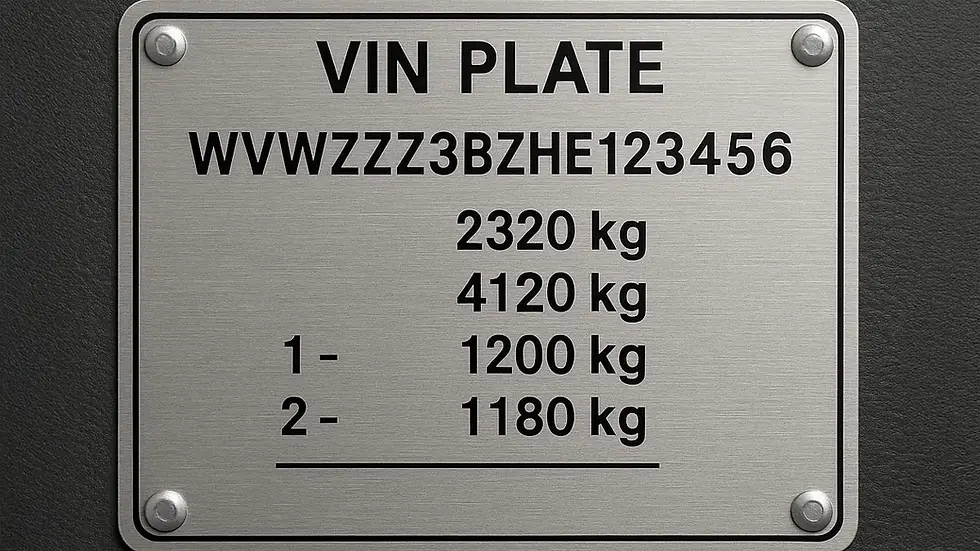What Is a VIN Plate? Why It Matters When Towing Your Trailer
- Brent

- Jun 19, 2025
- 2 min read
The VIN plate (Vehicle Identification Number plate) is a small metal or sticker plate found on most vehicles. You’ll usually find it:
Under the bonnet (on the engine bay frame)
On the driver's door frame or door sill
In the owner’s manual (if you’re lucky)
It contains key information about your car, including:
The VIN (a unique 17-digit vehicle ID code)
Manufacturer info
Maximum axle loads
Don’t worry, we’ll explain what all that means in a second.
Why the VIN Plate Matters for Towing
If you’re towing a trailer or horsebox, you need to know how much weight your car is legally allowed to pull. This isn’t just a suggestion — it’s the law, and towing over the limit can get you fined, void your insurance, or worse.
Here’s how the VIN plate helps:
GVW (Gross Vehicle Weight): This is the maximum your vehicle can weigh fully loaded (passengers, fuel, dog, snacks — the lot).
GTW (Gross Train Weight): This is the total allowed weight of your vehicle plus whatever you're towing.
To find your maximum towing capacity, simply subtract the GVW from the GTW:
GTW – GVW = Max towing capacity
Example:GTW = 4000kgGVW = 2500kgTowing capacity = 1500kg
So you’d need to make sure your loaded trailer doesn’t go over that 1500kg mark.

What If There’s No GTW on the Plate?
Some cars — usually smaller hatchbacks, hybrids, or performance models — aren’t designed to tow anything at all. If there’s no GTW listed, that means your car isn’t approved for towing. The legal limit is basically zero.
Don’t try to wing it. It’s not worth the risk.
Quick Tips from Brent
Always check the VIN plate before you tow, especially if you're using a different car.
If you're hiring a trailer from Brent, make sure your vehicle’s capacity matches the trailer you're booking.
When in doubt, ask us. We’ve helped plenty of first-time towers get sorted the right way.
Final Thought: Know Your Limits, Tow With Confidence
Your car’s VIN plate is like a cheat sheet for towing — telling you what’s safe, legal, and possible. So before you hitch up, take 30 seconds to check it. It'll save you a heap of bother.
Ready to hire a trailer that suits your setup?




Comments